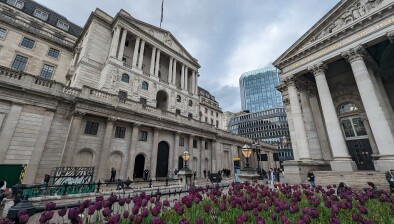RSM & KPMG tax chiefs predict outcomes of Scottish Budget

Shirley McIntosh
RSM and KPMG’s heads of tax in Scotland have issued predictions for the upcoming Scottish budget with the two anticipating a focus on recovery after COVID-19.
Shirley McIntosh, RSM’s head of tax in Scotland, said the budget should be a ‘war chest statement’ ahead of the May election.
However, she said the focus on recovery after COVID-19 will understandably take precedence.
Ms McIntosh said: “The lack of a Westminster Budget in the autumn has already presented a challenge for the Scottish Government. With much of the funding still coming in the form of the Block Grant from Westminster, the UK budget normally provides important information for the Scottish Government budget process; which is ultimately missing this year.
“The Finance Secretary will inevitably make further reference to the limitations on the Scottish Government’s tax raising and borrowing powers and the effect that this has on the ability to meet its ambitions. This will likely be a key component of the forthcoming election campaign.
“When you combine this backdrop with an unstable economic landscape, then we are unlikely to see any significant headline tax changes as continuity and stability for taxpayers and businesses will be crucial at this time.
“To give businesses a boost, particularly in the struggling retail sector, the Finance Secretary may consider an extension to rate reliefs to help protect jobs and stimulate economic growth throughout the year. However, business rates revenue goes directly to local government so any shortfall in income could impact local services.”
She added: “It is possible that we could see some last minute adjustments to the Scottish Budget before the 5 April 2021 deadline following the UK Budget on 3 March 2021; particularly if the Chancellor extends the Stamp Duty Land Tax holiday as the Finance Secretary might look to mirror this move with Land and Building Transaction Tax (LBTT) in Scotland.
“However, the pressure on the fiscal landscape in Scotland is growing; and could well become more acute if redundancies increase once Government support, such as the furlough scheme, comes to an end. If the unemployment rate increases, then the tax take will decrease at a time when financial support is needed; so, additional borrowing, if possible, is likely, but further tax reform may play a part in cash generation in the future.”

Vishal Chopra
Vishal Chopra, KPMG’s head of tax in Scotland, added: “Whilst there is an urgent need to raise revenues to help pay for the support provided in response to Covid-19, a fine balance is required between raising taxes too aggressively and stimulating economic recovery. We are - of course - also in an election year and so the broad expectation is that no significant changes will be announced which haven’t previously been trailed.
“Kate Forbes is likely to have job protection and support for business at the heart of the Scottish Budget. Forecasting from KPMG’s Economic Outlook suggests that the Scottish economy could grow by 3.9% in 2021, which is slightly behind the growth forecast across the UK as a whole. This assumes a gradual easing of restrictions and falling infection rates over the course of this year seeing a return to normality by the Autumn, and is followed with forecast GDP growth of 5.7% in 2022.
“No small task then for the Finance Secretary as she sets out her plans for Scotland’s economic recovery, with taxpayers calling for certainty on the longer term support needed. Clearly some sectors have been affected more than others, and there is an opportunity now to level up the economy. Support for our beleaguered high streets may come in the shape of reforms to business rates and stamp taxes, and we could see more detail on the package of streamlined planning processes and tax and customs reliefs for Scotland’s proposed free ports.”
He concluded: “The vaccine rollout provides some hope of returning to normality in the future, albeit the country remains in a precarious position balancing health, jobs, and personal wellbeing.
“It is unlikely we will see much movement on income tax rates, albeit the tax bands may well change to prevent further disparity between Scottish taxpayers and those living in the rest of the UK. As with last year, the impact of this Scottish Budget will need to be considered alongside the UK Budget being delivered on 3 March.”







